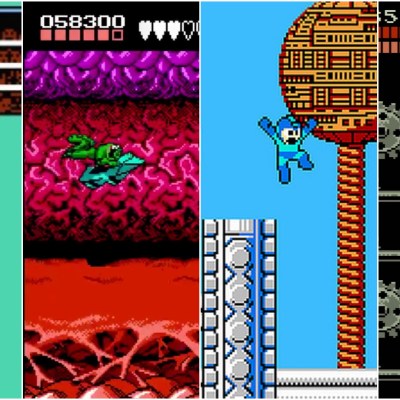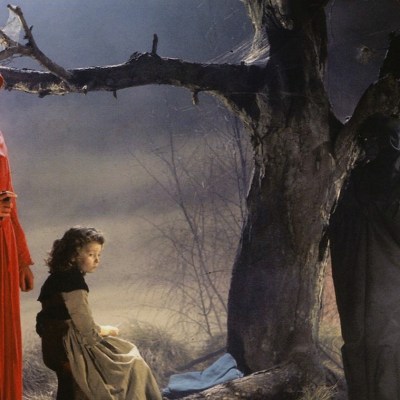15 NES Games You Didn’t Know Were Censored
The more innocent games of your NES childhood were often only innocent due to some pretty heavy censorship.
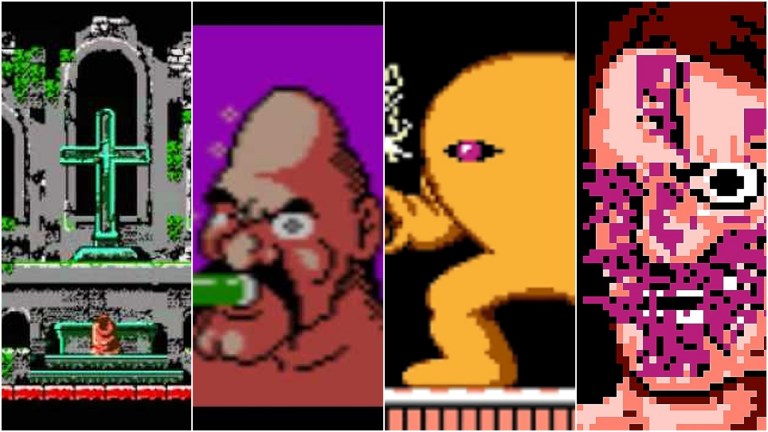
The NES wasn’t just the home of some of the best games ever made; it was an almost miraculous device that delivered some of the purest and most wholesome moments of many of our childhoods. Of course, part of the reason why NES games were so wholesome compared to many modern titles is that Nintendo usually ensured they were heavily censored by the time many of us played them.
At a time before the ESRB and a global conversation about the impact of video game violence, Nintendo took it upon themselves to impose a strict series of content guidelines that almost all developers had to follow. Those guidelines (as well as regional content standards) resulted in some of the biggest NES games ever made effectively being “censored” in ways that many of us never knew about when we were young.
So if you can’t help but wonder how some of the best games of your childhood were secretly a little dirtier than you ever expected, join us for a look back at 15 NES games you didn’t know were censored.
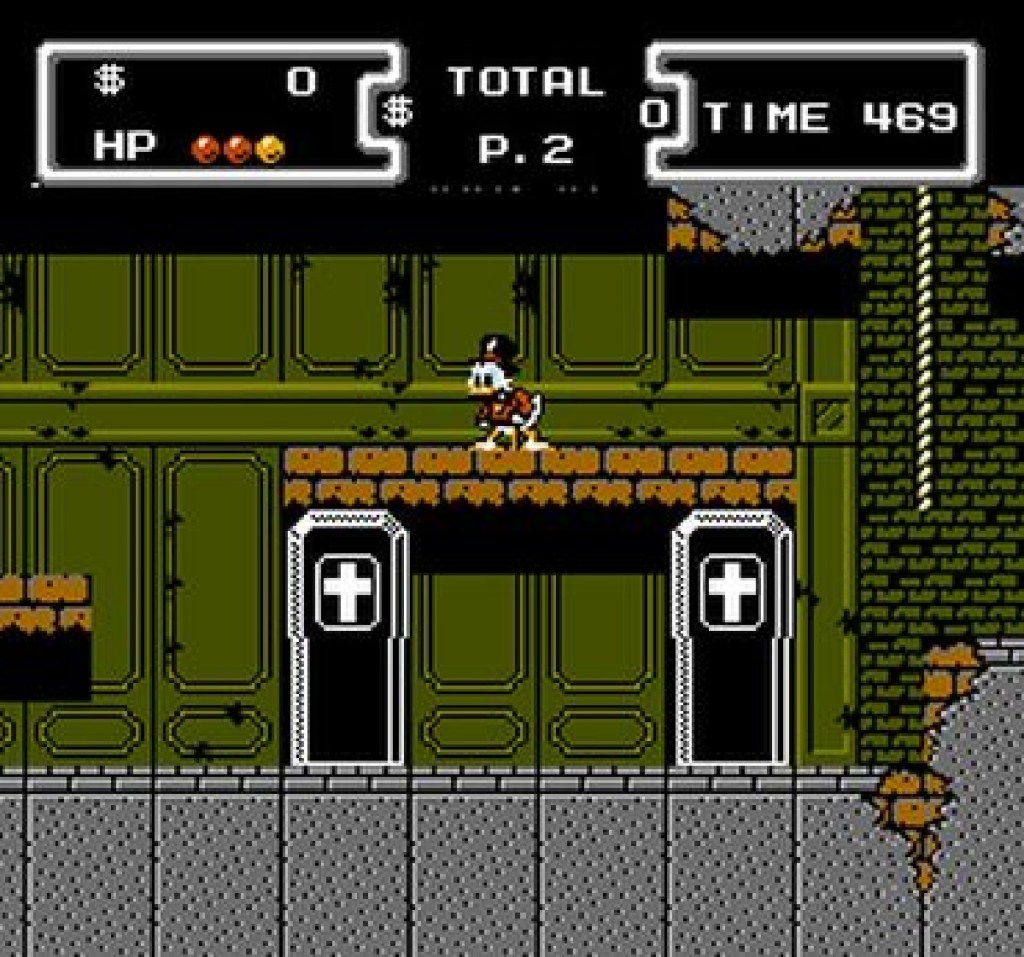
15. Ducktales
Wait, Ducktales was censored? Why would you ever need to censor Ducktales? Who would ever put anything into a Ducktales game that’s worth censoring?
The offenders in this instance were the coffins found in the game’s Transylvania level. In the original version of the game, the coffins were decorated with a cross. In the U.S. version, the cross is replaced with the phrase “R.I.P.” As we’ll see throughout this list, the change is consistent with Nintendo’s policies at the time regarding religious imagery in U.S. games.
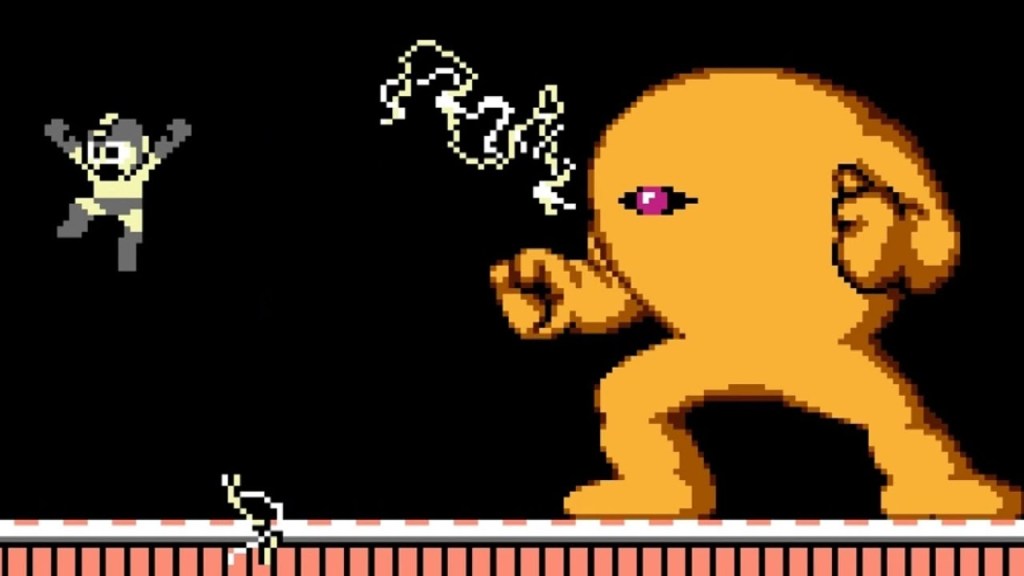
14. Mega Man
The Mega Man franchise has actually been censored quite a bit over the years, but you’re not alone if you find it strange that the original Mega Man game had to be censored. After all, it’s a game with little story and seemingly no offensive elements. What is there to censor?
As it turns out, famous Mega Man miniboss Rock Monster was the problem. In the original version of the game, Rock Monster was called Yellow Devil, which actually makes a lot more sense in terms of the character’s design. However, it was ultimately determined that the word “Devil” may be too religious for Western audiences.

13. Punch-Out!
You probably know that Mike Tyson was eventually removed from Punch-Out! and replaced with Mr. Dream, but what you may not know is that the NES version of the game significantly altered another one of the original version’s most notable fighters.
The arcade version of the game featured a character named Vodka Drunkenski. As you probably guessed based on the name, Drunkenski was a Russian stereotype who drank heavily during fights. It’s not entirely clear if Nintendo had a problem with the character’s stereotypical elements, but they certainly had a problem with his substance abuse. The character was renamed Soda Popinski in the NES version of the game and was often shown drinking generic soda pop rather than alcohol (even if he still makes the occasional alcoholic reference).
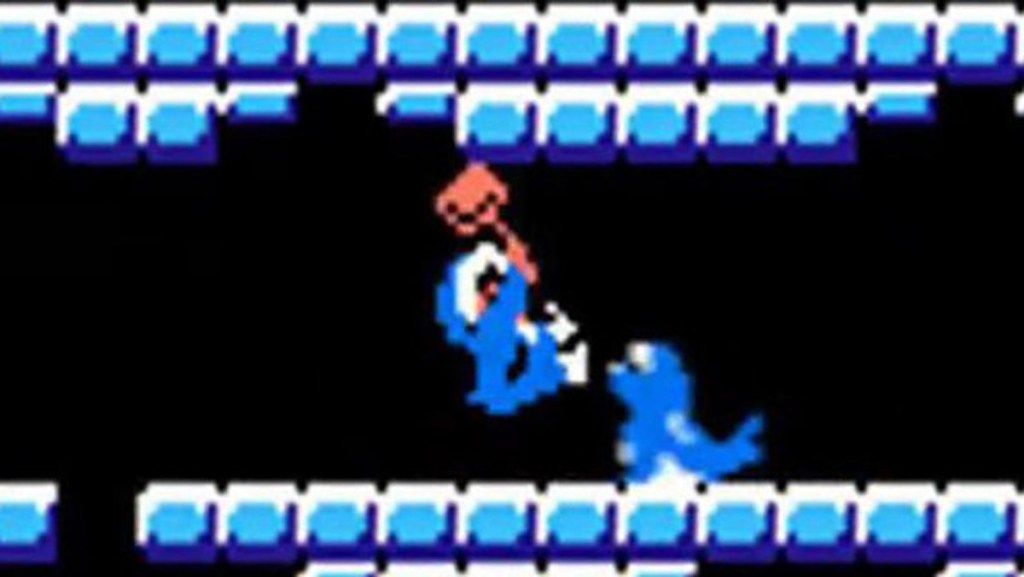
12. Ice Climber
A lot of NES games were censored due to sex, drugs, and all the other things the parents in Footloose were worried about, but the reason for Ice Climber’s censorship is as unique as it is bizarre.
See, the original version of Ice Climber included enemy seals that you could hit with a hammer. Someone at Nintendo of America saw that and thought “Wow, that looks a lot like seal clubbing” and probably rightfully decided to change the seals to far more intimidating Yetis.

11. The Adventures of Bayou Billy
Some of the ways that The Adventures of Bayou Billy was censored make sense given the standards of the time. For instance, Billy’s girlfriend Annabelle wears more clothes in the U.S. version of the game, and additional scenes of violence (including an alternate game over screen that showed Billy reaching out to the player as he is dying) were removed.
Then you have the game’s ending. The original version of the game’s ending let you walk away from Annabelle and trigger a darkly hilarious sequence where Annabelle stands there confused and alone. In the U.S. version, you can only access the happy ending where the two get together. It’s not entirely clear if the change was the result of “censorship,” though that move does track with some of Nintendo’s other censorship decisions at the time.
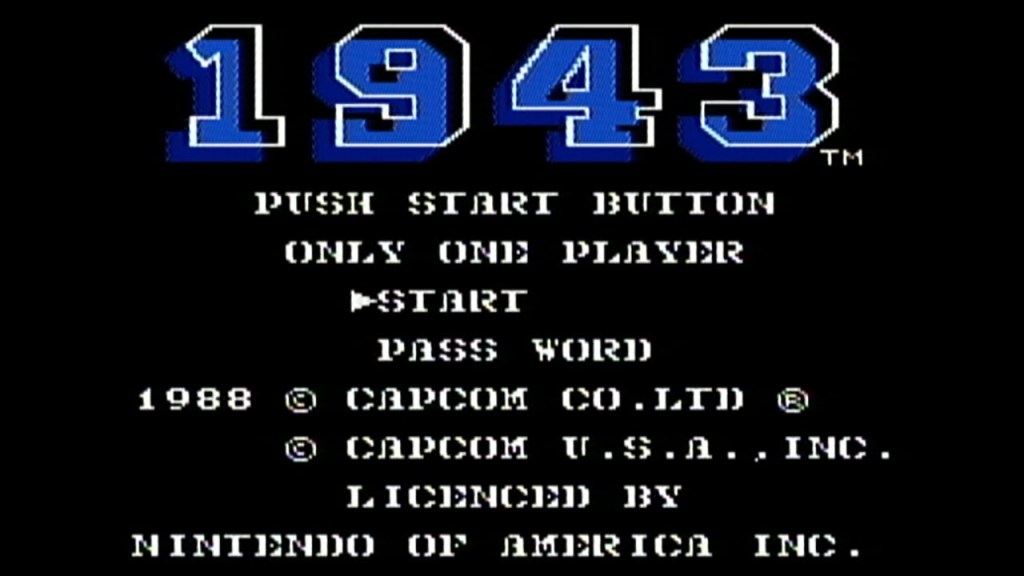
10. 1943: The Battle of Midway
In a comparatively rare instance of an NES game that was censored in Japan but not America (or at least changed due to regional differences), 1943: The Battle of Midway’s name was changed to 1943: The Battle of Valhalla in Japan. In-game, the title is often shortened to 1943 (in both regions).
The reason for this change is probably pretty obvious to history buffs and anyone familiar with 1943’s premise. After all, the game sees you play as an American pilot tasked with shooting down Japanese aircrafts on his way to sink the Yamato battleship. That premise was obviously considerably more awkward in Japan, although it’s not clear why The Battle of Valhalla was chosen as the replacement name.
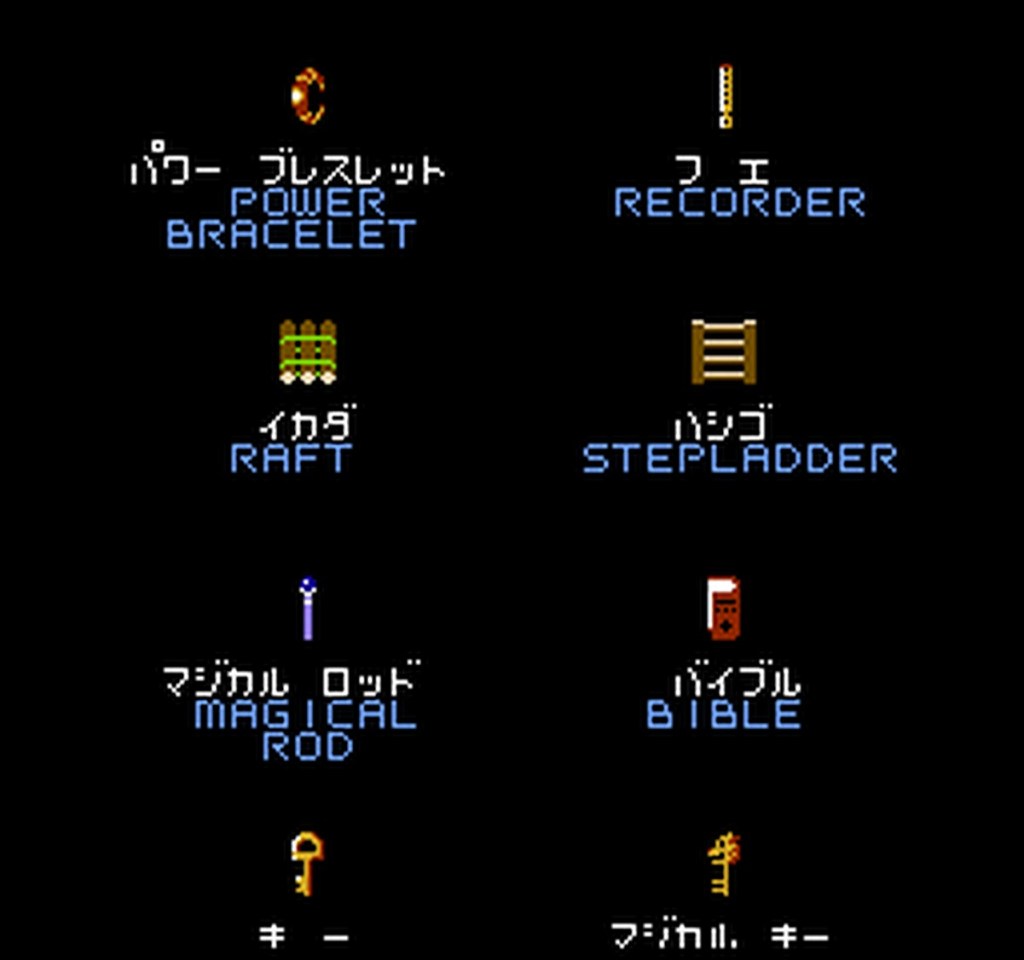
9. The Legend of Zelda
Here’s a weird one for you. In the Famicom Disc version of The Legend of Zelda, you could use an item simply referred to as a “Bible.” The name of this item was later changed to Book of Magic in order to remove a pretty obvious religious reference.
What’s really odd about this change is that the “Bible” reference only appears in the Famicom disc version of the game. The NES and Famicom version both use the Book of Magic name, though the latter’s Japanese characters still spell out “Bible.”
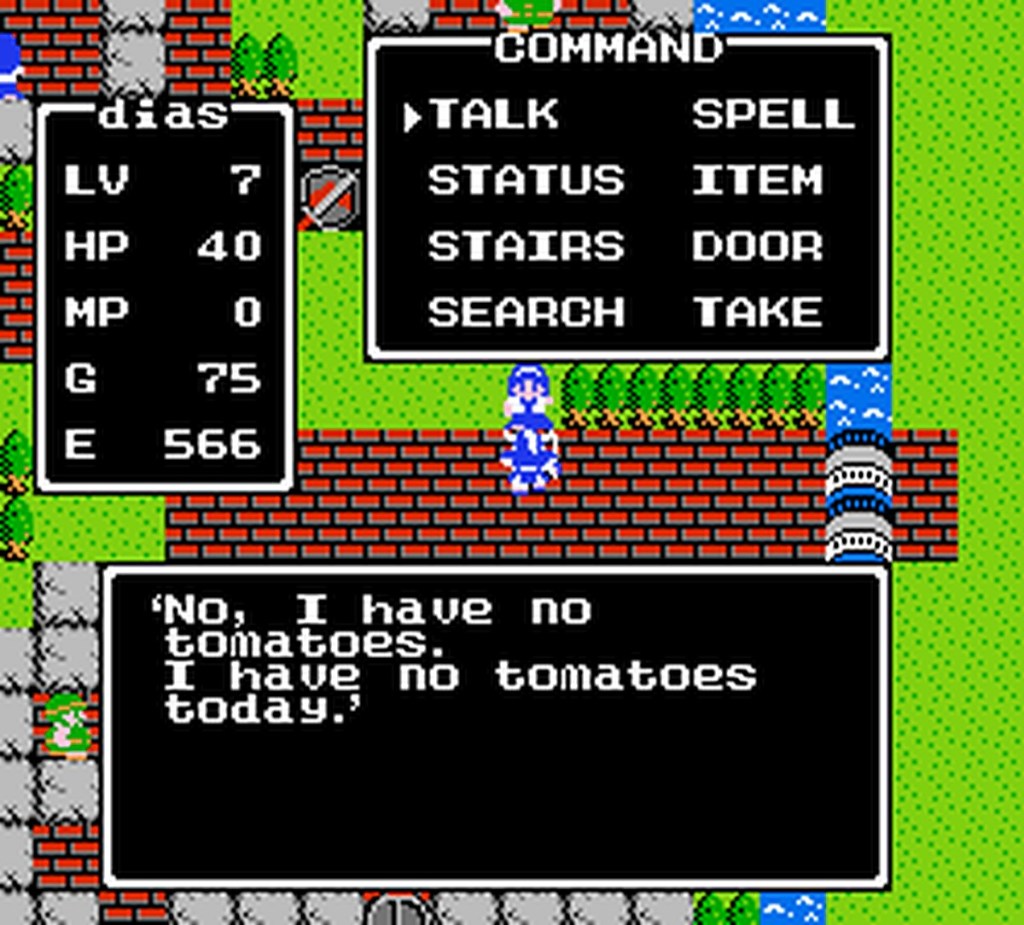
8. Dragon Quest/Dragon Warrior
While later Dragon Quest games (especially Dragon Quest 3) were heavily censored in the West due largely to religious references, the original Dragon Quest (or Dragon Warrior, as it was known in the West) features an incredibly bizarre instance of censorship that has long confused players.
See, in Dragon Warrior, you encounter a character who tells the player they have no tomatoes to sell them today. An already bizarre line is made all the stranger when you realize that character offers the player a “puff puff” in the original version of the game. While the exact meaning of “puff puff” has changed and been debated over the years (it initially seemed to refer to a massage technique involving a woman’s…umm…nevermind), the idea of receiving a “puff puff” has since become a running joke in Dragon Quest.
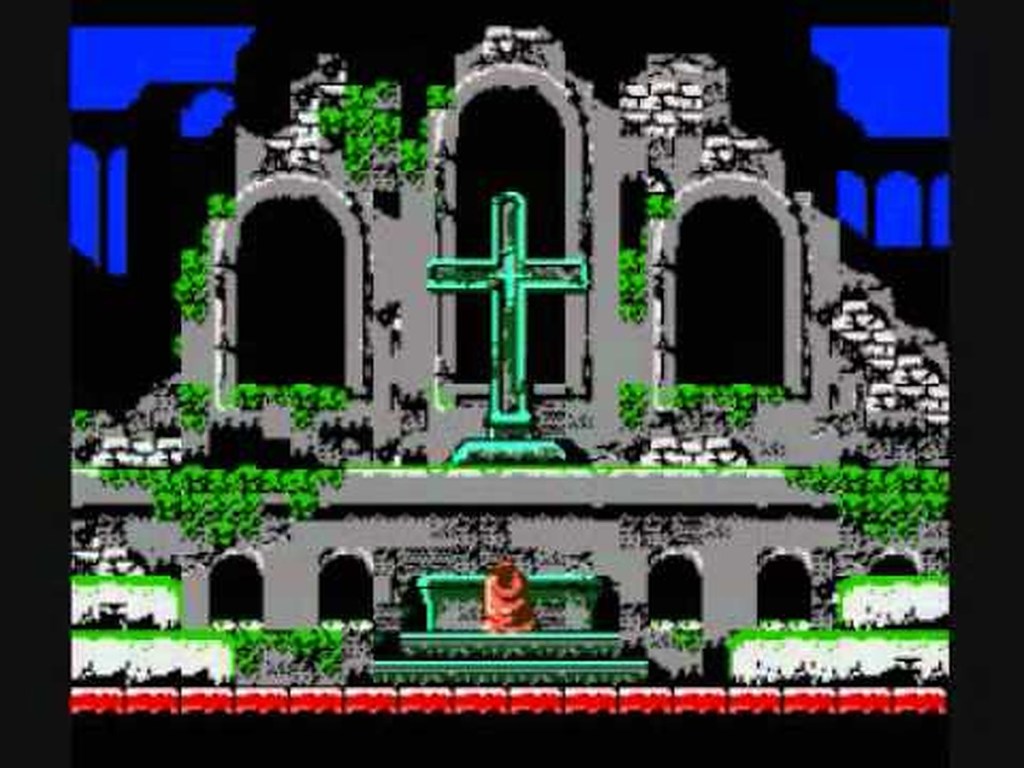
7. Castlevania 3: Dracula’s Curse
The early Castlevania games were usually censored over religious imagery, but Castlevania 3 stands out both for the sheer number of things that were censored and the things that strangely weren’t censored.
While the NES version of Castlevania 3 heavily targets instances of nudity (which includes putting clothes on nude statues and altering Medusa’s female form to something more nondescript), it actually features rarely seen instances of religious imagery in an NES game. You even encounter a giant cross at one point, though the “glowing” effect featured in the original version was removed in international ports.
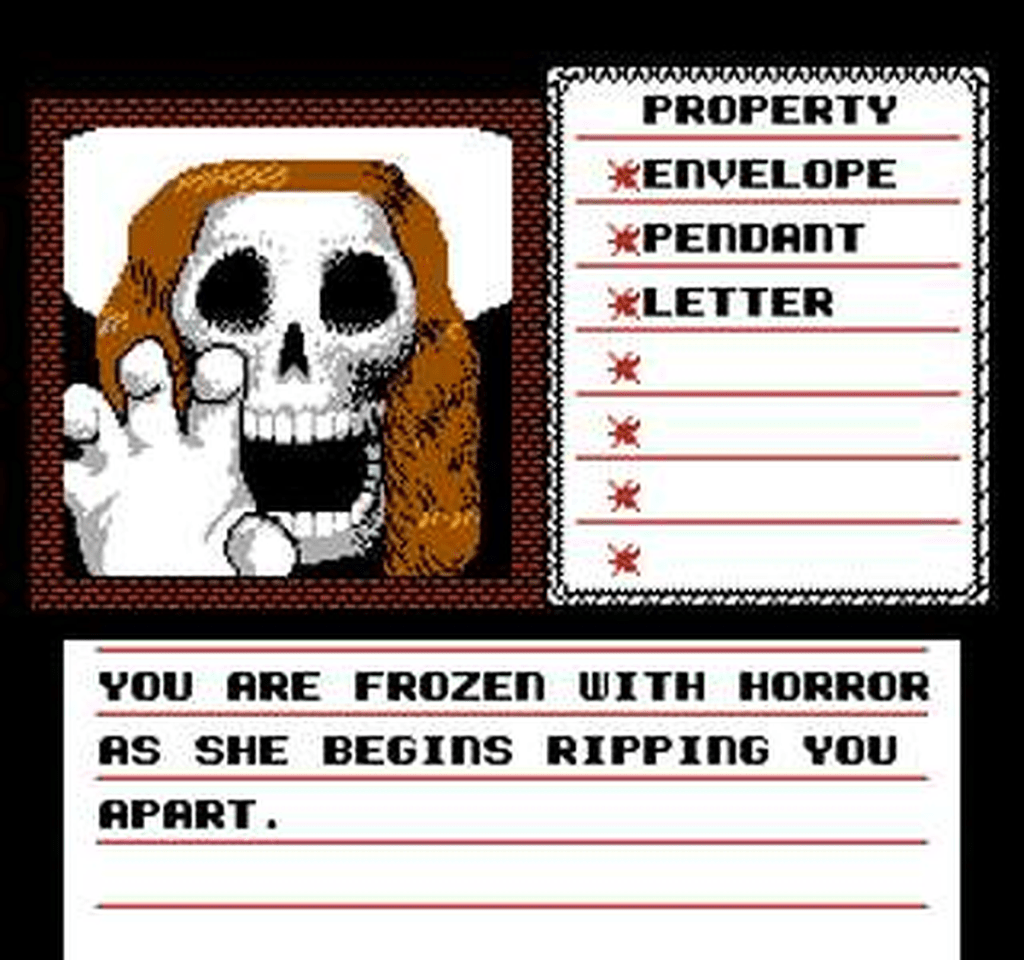
6. Uninvited
Uninvited features so many instances of violence and religious references that it’s honestly amazing Nintendo even bothered to port the game at all. Needless to say, nearly every religious reference was removed for the NES version of the game and many of the more graphic descriptions of enemy attacks were edited to be less intense.
Interestingly, though, you still find a letter near the beginning of the NES version of the game that’s addressed to “Master Crowley.” Why is that so interesting? Well, it’s a clear reference to Aleister Crowley: the most famous satanist ever. That one seems to have slipped by the censors.
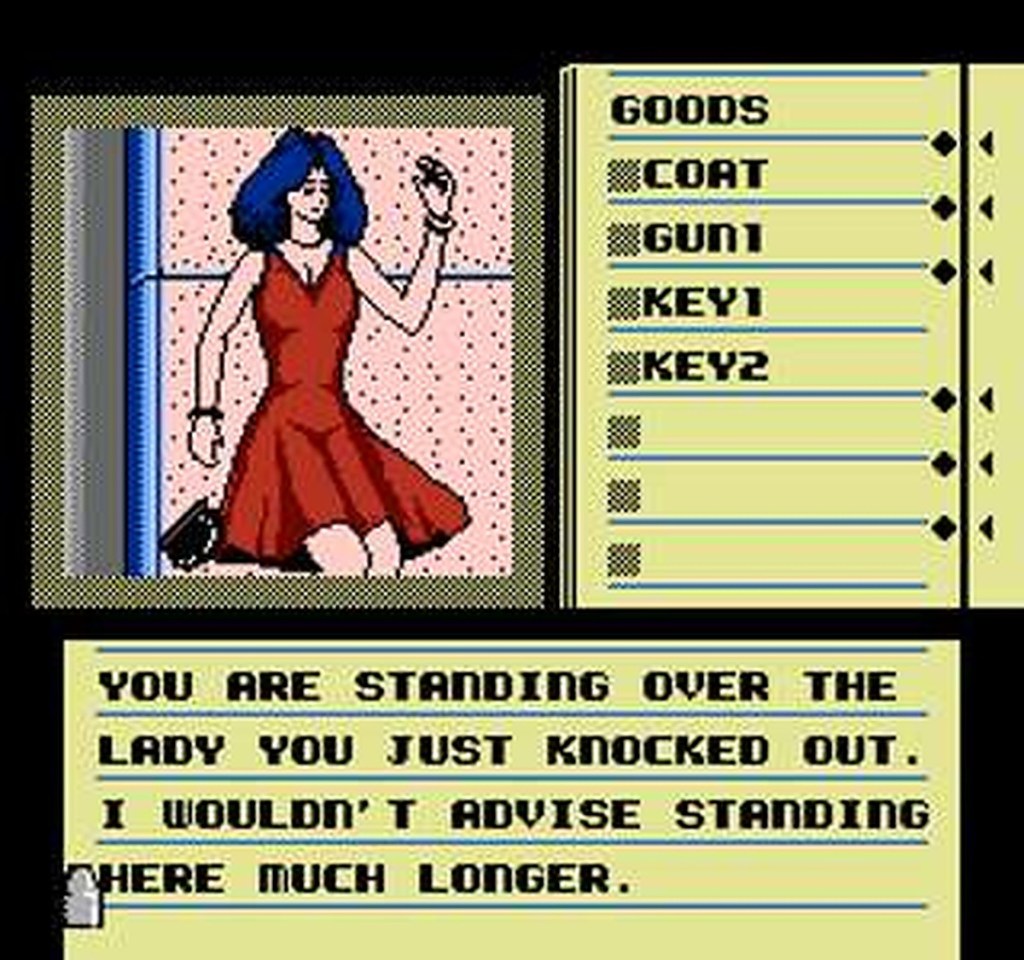
5. Deja Vu
Much like Uninvited, Deja Vu is such a comparatively “mature” game that it’s honestly a shock that Nintendo bothered to port it. Again, nearly every reference to gun violence, drugs, alcohol, and sex was either cut from the game or heavily edited, which is what you’d expect.
What’s interesting in this case are the things that Nintendo decided not to censor. For instance, there’s a prostitute in the game that isn’t referred to as a prostitute in the NES version, but you’re still able to hit and shoot her if you choose to do so. She’s also able to shoot you, though the graphic description of where she shoots you has been edited out of the NES port.
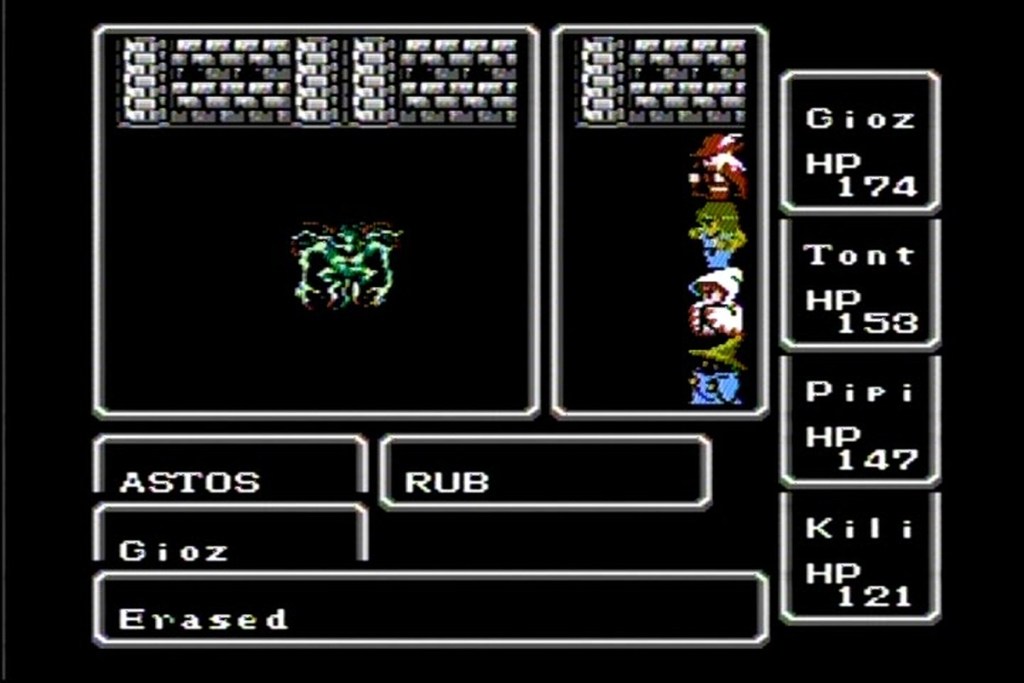
4. Final Fantasy
Many of the ways Final Fantasy was censored can be blamed on the usual content suspects. For instance, “churches” were renamed “clinics” (and the crosses outside of them were removed), and Medusa and Earth Medusa (who were both topless in the Japanese version of the game) were redesigned.
Then there’s the matter of the “Kill” spell (which is also known as “Death” according to some translations). While Nintendo obviously decided to not use the word “kill” for the Western version of the game, the fact that they changed the name of the spell to “Rub” really boggles the mind. I suppose it’s supposed to be short for “rub out,” but even that is an odd choice of wording.
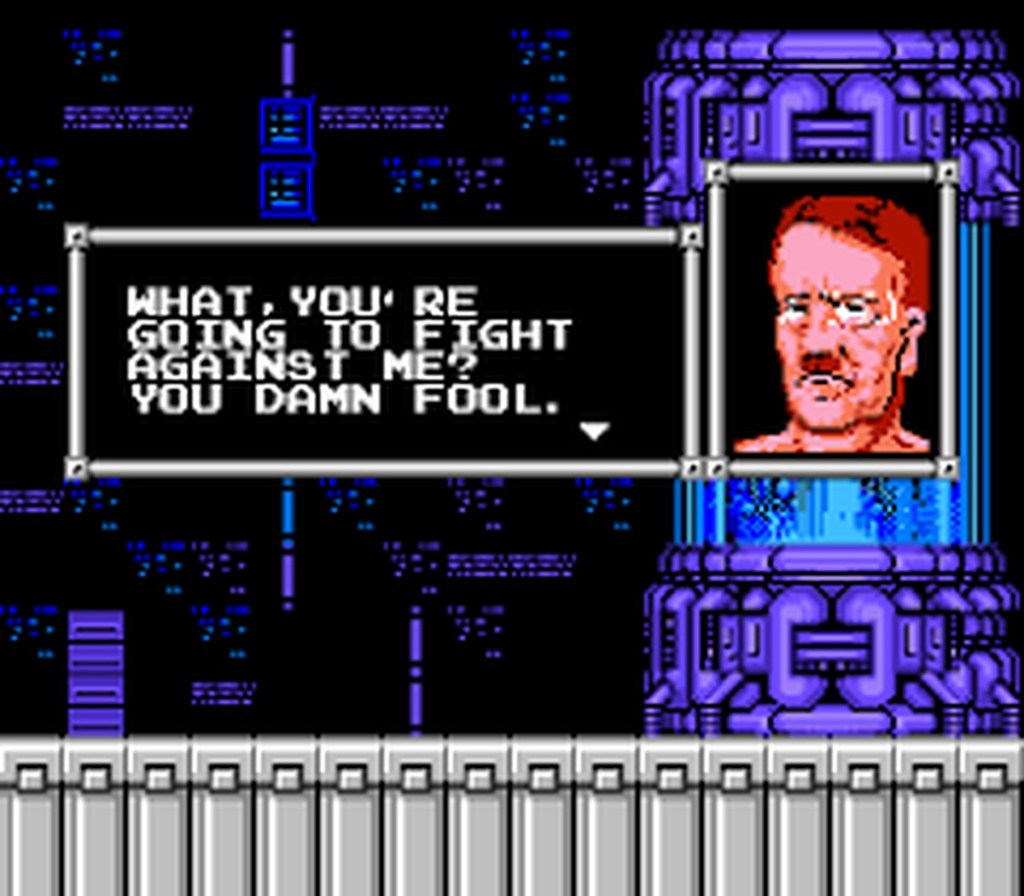
3. Bionic Commando
While a couple of the smaller ways that Bionic Commando was censored are downright hilarious (including changing the line “Get the heck out of here, you nerd!” to “Don’t be hasty advance with caution.”), most of the game’s censorship revolves around Adolf Hitler.
Hitler is featured so often in the Japanese version of Bionic Commando that he even has a prominent place on the game’s original cover. In the U.S. version of the game, though, Hitler is changed to a generic dictator named Master-D. That version of the game also replaces every Swastika with an eagle logo and refers to the Nazis as “The Badds.” Sadly, this means that U.S. gamers also missed out on the original ending in which Hitler’s head explodes Scanners-style.
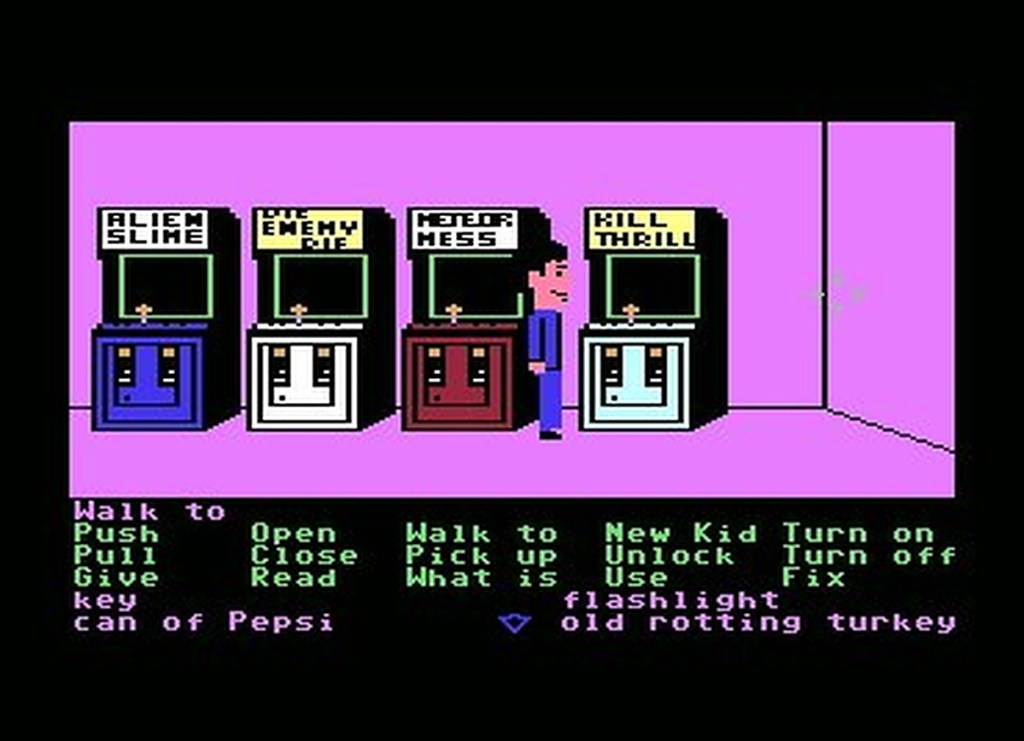
2. Maniac Mansion
It’s impressive that Maniac Mansion was ported to the NES at all given the game’s complexity and content, but it’s not a stretch to suggest that this is the most censored game in NES history. In fact, we could fill an article with every instance of censorship in this port. For that matter, we could spend an entire article talking about the very horny Edna and the many ways she was changed in the NES version of the game.
If you want to really appreciate just how heavily this game was censored, though, then we need to talk about “S.C.U.M.M.” That acronym stands for “Script Creation Utility for Maniac Mansion” which was essentially the engine used to design the game. However, the NES ports’ developers weren’t allowed to use S.C.U.M.M in the credits as it was too close to the word “scum” which Nintendo considered to be offensive.
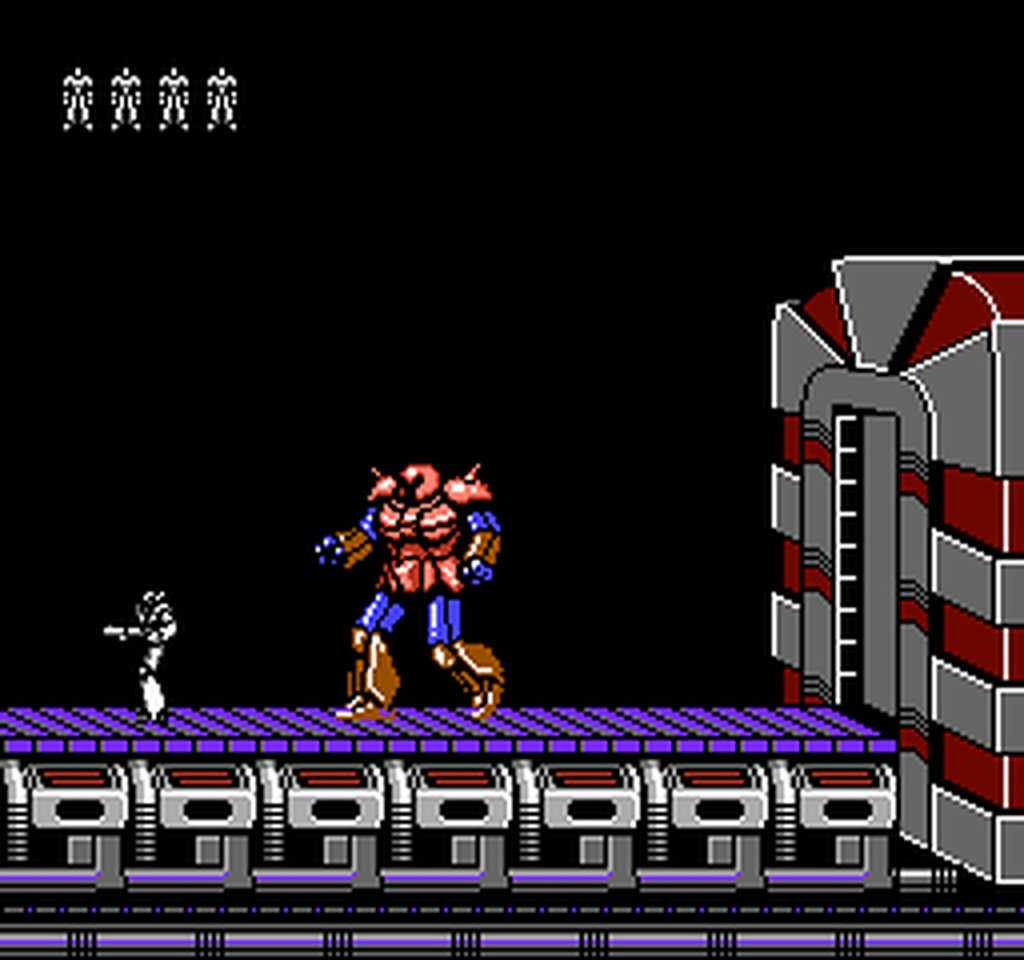
1. Contra
Contra deserves to top this list not just because of the extent of its censorship but the fact that it’s one of the few NES games that was specifically censored in PAL regions.
Actually, in PAL regions, Contra wasn’t even called Contra. The name of the game was changed to Probotector and all human characters were replaced with robots. That includes Contra’s playable characters (Bill and Lance) who were changed to robots and renamed RD008 and RC011. Why were such extensive changes made specifically for that region? Well, they seem to be largely based on German content laws at the time that prohibited shooting people in video games, but they may also be related to concerns over Contra’s U.S. military associations.

